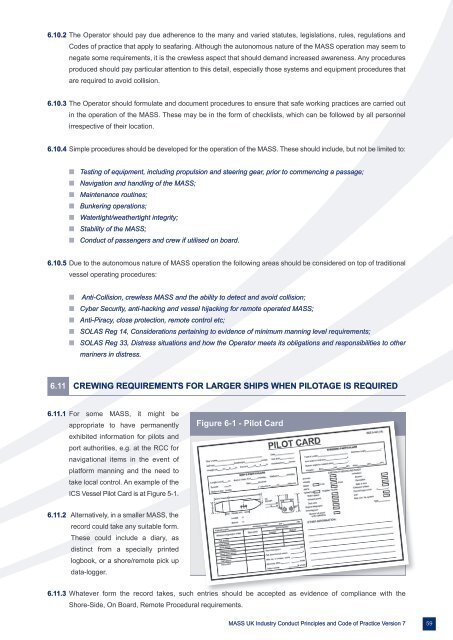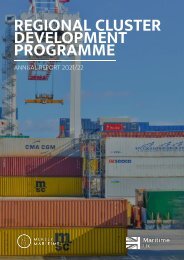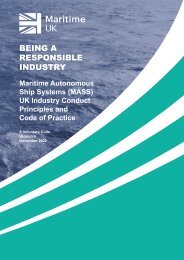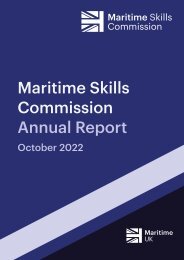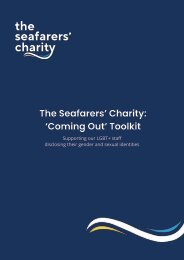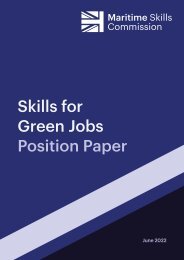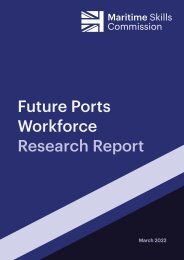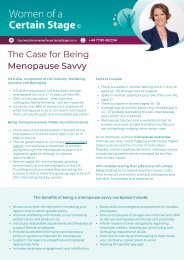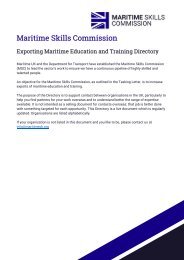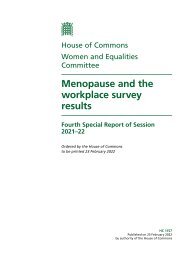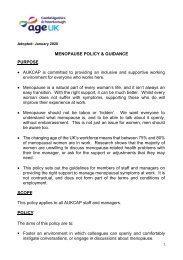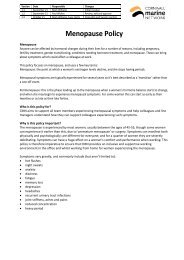COP_2023_V7_pages
Create successful ePaper yourself
Turn your PDF publications into a flip-book with our unique Google optimized e-Paper software.
6.10.2 The Operator should pay due adherence to the many and varied statutes, legislations, rules, regulations and<br />
Codes of practice that apply to seafaring. Although the autonomous nature of the MASS operation may seem to<br />
negate some requirements, it is the crewless aspect that should demand increased awareness. Any procedures<br />
produced should pay particular attention to this detail, especially those systems and equipment procedures that<br />
are required to avoid collision.<br />
6.10.3 The Operator should formulate and document procedures to ensure that safe working practices are carried out<br />
in the operation of the MASS. These may be in the form of checklists, which can be followed by all personnel<br />
irrespective of their location.<br />
6.10.4 Simple procedures should be developed for the operation of the MASS. These should include, but not be limited to:<br />
n Testing of equipment, including propulsion and steering gear, prior to commencing a passage;<br />
n Navigation and handling of the MASS;<br />
n Maintenance routines;<br />
n Bunkering operations;<br />
n Watertight/weathertight integrity;<br />
n Stability of the MASS;<br />
n Conduct of passengers and crew if utilised on board.<br />
6.10.5 Due to the autonomous nature of MASS operation the following areas should be considered on top of traditional<br />
vessel operating procedures:<br />
n Anti-Collision, crewless MASS and the ability to detect and avoid collision;<br />
n Cyber Security, anti-hacking and vessel hijacking for remote operated MASS;<br />
n Anti-Piracy, close protection, remote control etc;<br />
n SOLAS Reg 14, Considerations pertaining to evidence of minimum manning level requirements;<br />
n SOLAS Reg 33, Distress situations and how the Operator meets its obligations and responsibilities to other<br />
mariners in distress.<br />
6.11 CREWING REQUIREMENTS FOR LARGER SHIPS WHEN PILOTAGE IS REQUIRED<br />
6.11.1 For some MASS, it might be<br />
appropriate to have permanently<br />
exhibited information for pilots and<br />
port authorities, e.g. at the RCC for<br />
navigational items in the event of<br />
platform manning and the need to<br />
take local control. An example of the<br />
ICS Vessel Pilot Card is at Figure 5-1.<br />
Figure 6-1 - Pilot Card<br />
6.11.2 Alternatively, in a smaller MASS, the<br />
record could take any suitable form.<br />
These could include a diary, as<br />
distinct from a specially printed<br />
logbook, or a shore/remote pick up<br />
data-logger.<br />
6.11.3 Whatever form the record takes, such entries should be accepted as evidence of compliance with the<br />
Shore-Side, On Board, Remote Procedural requirements.<br />
MASS UK Industry Conduct Principles and Code of Practice Version 7 59


